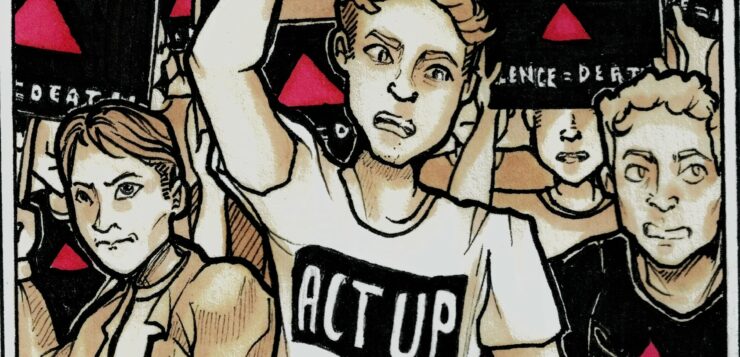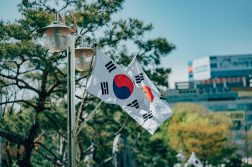CW: Homophobia and the F-slur
Human Immunodeficiency Virus (HIV) is something we have all certainly heard about at some point in our lives, for many as early as during sex-ed in school. It is an infamous virus that has claimed 35 million lives.
The rise of neoliberalism and the New Right, ushered in by Thatcher and Reagan in the 1980s, was surely a reactionary backlash in opposition to the radical politics of the previous decade – radical ideas that emerged from oppressed peoples, no longer voiceless and ignored. When AIDS became an epidemic, the consequences of this political shift were deadly. The so-called ‘silent majority’ – popularised by U.S. President Nixon in 1969 – was an embodiment of a conservative populous holding its tongue against the supposedly immoral and wayward developments of the anti-war, Black Power, second wave feminism, gay rights, sexual revolution, and socialist/labour movements.
It is within this context that we must analyse the rampant homophobia of the period and the fight against it. In the United States, AIDS was first named ‘Gay Related Immune Deficiency’ (GRID) after a high prevalence in gay and bisexual men infected with the disease was noted. Homophobic attitudes were fostered, and phrases like ‘AIDS Kills Fags Dead’” and ‘AIDS cures fags’ became widespread. LGBTQ people met this not with passivity, but with community support, continuing the legacy of gay liberation.
The response to the pandemic from both Reagan and Thatcher was centred on ‘personal responsibility’. The Republican and Conservative parties marched in step, allowing stigma to further alienate already marginalised communities of gay men and intravenous drug-users. This was demonstrated clearly by the sudden change in approach when AIDS was detected in haemophiliacs, surgical patients, and babies of infected mothers. Homosexuals and drug-users were deemed as ‘guilty’, whose unacceptable behaviours were to blame for their contraction of the disease, while the latter were seen as ‘innocent’, despite all AIDS sufferers contracting the same virus through no fault of their own. Policymakers began to focus on education, but while the U.S.’s approach centred abstinence from sex, especially anal sex, the UK promoted the importance of safe sex practices with the use of condoms.
In 1987, the organisation AIDS Coalition To Unleash Power (ACT UP) was formed in New York City and eventually spread internationally, though not to the UK. The grassroots activists popularised the slogan ‘Silence=Death’ to combat the stigmas in society and challenge the inadequate and fatally slow response from the government. Key founder of the group, Larry Kramer, was a renowned American playwright who passed away this year, after living HIV-positive for over thirty years. In an essay, titled ‘1,112 and Counting’, he wrote: ‘How long does it take before you get angry and fight back?’
For this question, the words of James Baldwin are strikingly relevant:
‘I’m not going to live another 60 years, … You always told me that it’s going to take time. … It’s taken my father’s time, my mother’s time, my uncle’s time, my brothers’ and my sisters’ time, … How much time do you want for your progress?’
And in the context of a life-shortening disease, these words ring harrowingly true. In the UK, it took over 30 long years for discriminating against someone’s HIV status to be made illegal.
Perhaps Boris Johnson’s words at the beginning of the Coronavirus pandemic mark a turning point, contradicting Thatcherism by remarking that ‘there is such a thing as society’. Though, with a virus that disproportionately affects poor and BAME communities, while various people are used as scapegoats by a government whose response has been criticised as disastrously irresponsible, we may be seeing history repeat itself.




